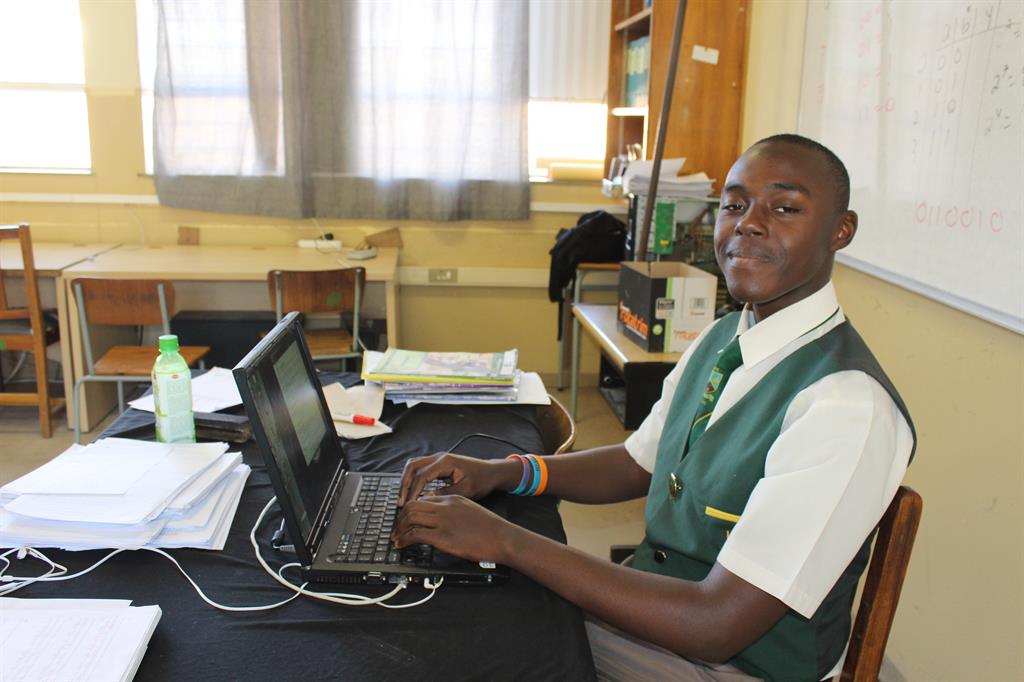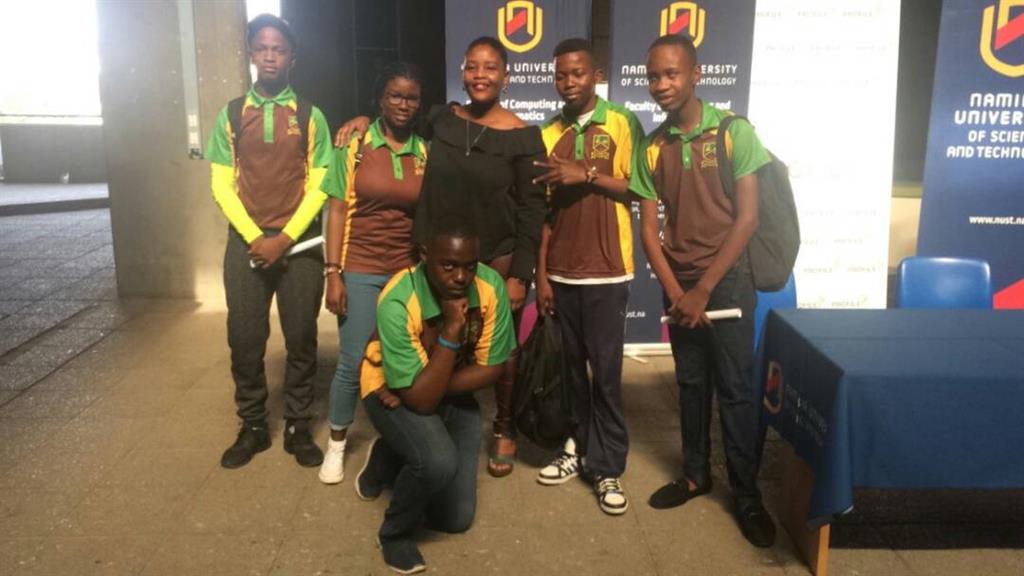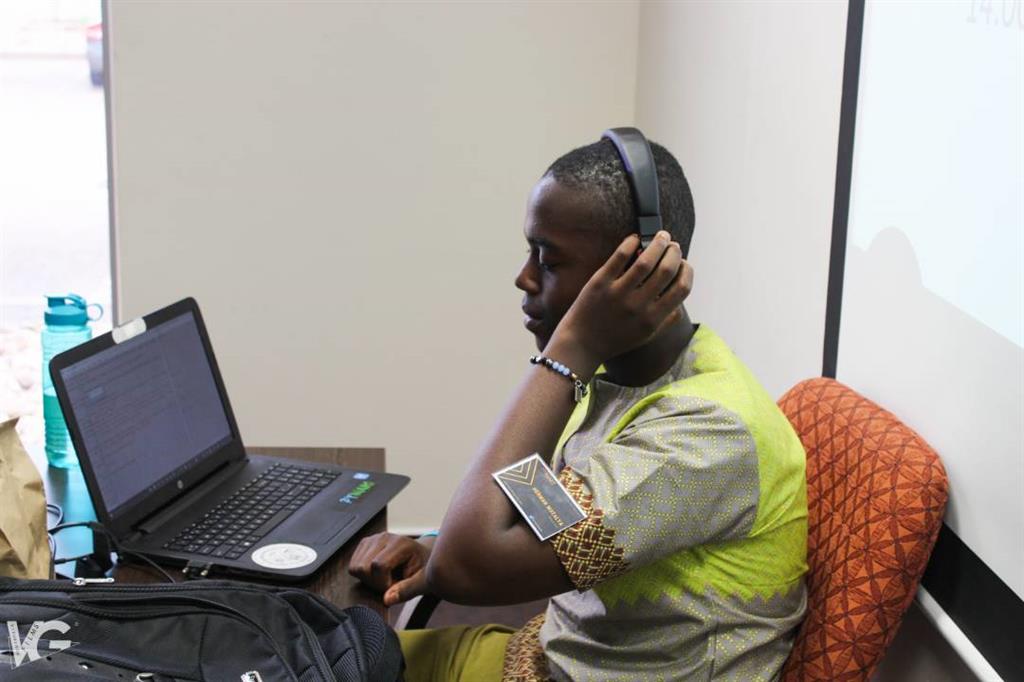New study buddy on the way
Pupils from various schools are curious to use the Study-Pal application, which will help them with their studies.
Justicia ShipenaCarmen Thobias, a grade 12 learner at Windhoek Technical High School, said that she thinks the application is going to help a lot of learners because not everyone has the means to attend afternoon classes. They can download the application and use it because some teaching methods are not that effective.
“I would encourage my fellow learners to use the application once it’s launched as most of them work best with technology, so they are more likely to study through their phones than textbooks that are outdated and you can have the information anywhere at any time,” she said
Grace Anti, a grade 12 learner at Mweshipandeka High School, thinks it is a great idea since the world is changing to an advanced stage, which it can make studying easier. She further said the government will not have to spend a lot of money on textbooks.
“I believe that most of the youth have smartphones and can easily get access to the study application once it is launched,” she said.
Study-Pal is an application created by Herman Mutalya, a grade 12 learner at Windhoek Technical High School.
He is in the final stages of developing the mobile application. Mutalya said Study-Pal will make studying easier for grade 12 learners in Namibia.
Speaking to The Zone last Wednesday, Mutalya said as part of continuous assessment at his school, his computer studies teacher asked the class to come up with a project that will solve a certain issue in the community, and that was how the idea came about.
He further said Study-Pal will make use of the Namibian syllabus. The application finds out what the Namibian government want pupils to learn and it gives them the basic terminologies, making it easier for them to understand.
The app also includes study tips and interesting facts relating to all the subjects that learners study.
“Study-Pal will be available for download on Android and iOS and will be compatible to be used on laptops,” he said.
Mutalya says the application does not only target people with access to expensive phones.
“Students could go to an internet hub and use the computers there to use it, even though one has to walk a few miles. Where there is a will, there is a way,” he said.
According to Mutalya being a member of the programing club at his school made him develop a keen interest in coding and programming.
He said for him coding is not just about communicating with a computer, but it is also a way of creating something new.
“Programming could bring about change and innovation in the country and with our country going through an economic crisis, innovation should be encouraged,” he said.
Mutalya said it was difficult to work on his project, as the school computer lab has no computers available. The only fear he has about the application is the lack of memory or resources.
“The future for this project is too see it as an international recognised application, helping people to study and it to give people an eased mind when going to write exams,” he said.
Jessica Upani, Mutalya’s computer studies teacher, said when he explained his idea to her it did not come as a surprise because she has high expectations of him.
“When your learner creates an alarm clock of his own after one year of programming, you quickly raise the standards so that you push him to greater heights,” she said.
Upani said Herman is one of the most hardworking learners she knows, who is also committed and very reliable.
“He started programming in 2016 with another group of 20 learners and he is one of the five who persisted from that group. Today he has created numerous applications, he now tutors his fellow schoolmates and he gives talks at conferences,” she said.
Upani further said the public and private sectors should invest in such upcoming talent, as there is a great need for computers throughout the country for computer studies’ learners.
She further said as a nation we should work harder to fix this problem, because it holds back our children from unleashing their true potential. Once the public and private sectors start using software products created locally, instead of buying software internationally, this will bring about a competent team of Namibian software developers.
“We lose the small group of great programmers that we have to other countries, because they are more appreciated and paid better internationally than they are locally,” she said.
Indileni Haikiyata, a grade 12 learner at Academia Secondary School, said the Study-Pal application is a great platform for matric learners and it will be an effective study method. She also thinks it will be beneficial in the long run, depending on how determined and committed the individual is who comes across the platform.
Ted-Kevin Nathinge a grade 12 learner from Windhoek Technical High School, thinks it’s a good initiative. “Herman tutors us at school and it has been helpful, so I think Study-Pal would be beneficial to many,” he said.
Clark Seibeb, the head boy of S.I Gobs Secondary School, said he is eager to use Study-Pal and he thinks it is a fantastic initiative which will be beneficial to many learners.
“Even though not every student owns a smartphone, they could go to the public library to access the application via computers,” he said.









Comments
My Zone
No comments have been left on this article